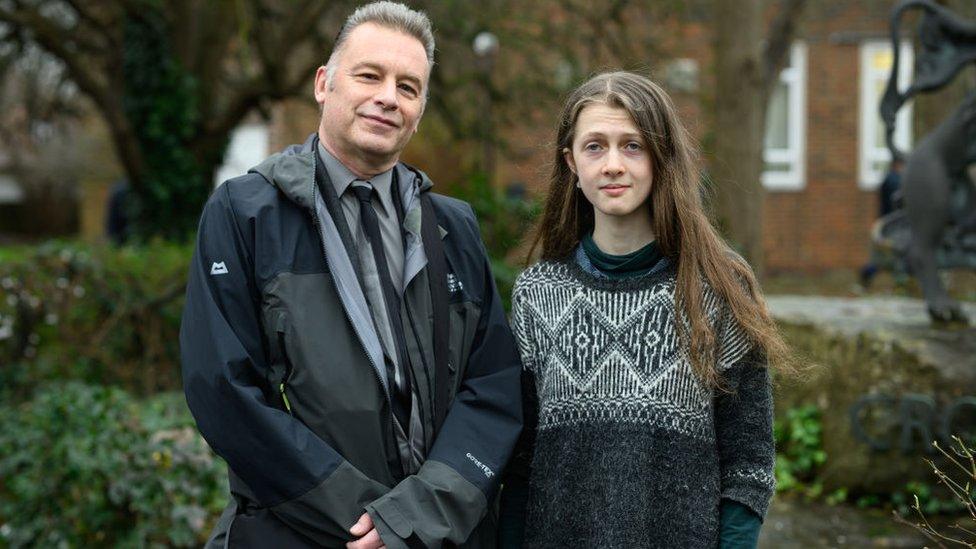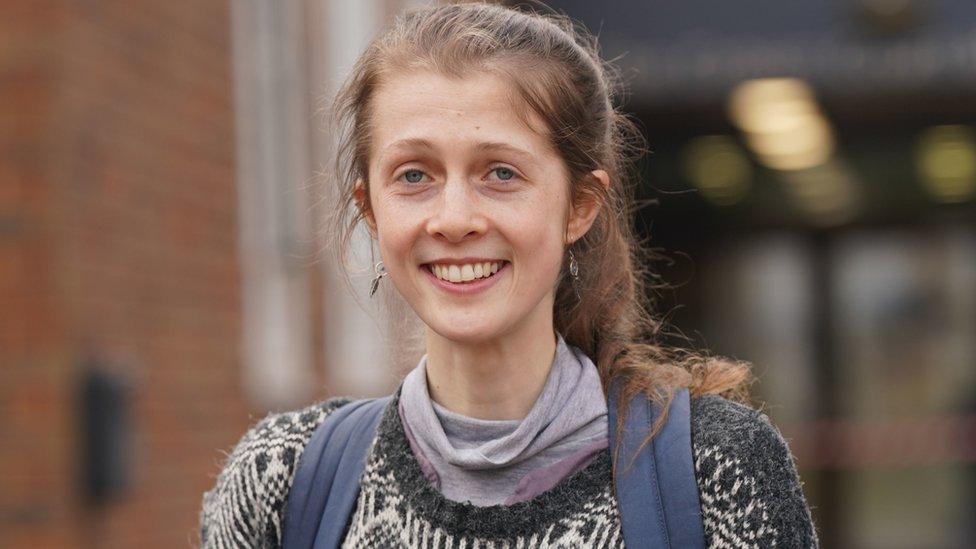Just Stop Oil protester who delayed thousands convicted over M25 protest
- Published

Environmentalist Chris Packham, who was stuck in the traffic caused by Cressida Gethin's actions, spoke in court to "sympathise" with her
A Just Stop Oil protester has been convicted of causing a nuisance by climbing on to a gantry over the M25 in west London.
Cressida Gethin, 22, scaled the gantry above the M25 near Heathrow Airport in July 2022 to protest the UK reaching its hottest temperature on record, 40C (104F), the day before.
Those affected by delays included 4,000 airline customers, the court heard.
She did not dispute scaling the gantry but denied it amounted to the charge.
Speaking outside Isleworth Crown Court after the verdict, the Cambridge University music student said she did not regret the protest and would "not back down".
As a result of the protest by the climate activist group, 3,923 British Airways customers were affected by cancellations and delays, said Edwin Hall, senior manager at British Airways, in a statement read to the court.
Broadcaster and environmentalist Chris Packham told the court during the trial that he was stuck in the resulting traffic for four to five hours during a trip from Hampshire to Surrey, where he was working on a BBC programme.

Gethin said she wanted to "interrupt business as usual" with her protest
He told jurors he came to "sympathise" with the fact he was forced to think about climate change while he waited.
Mr Packham later said outside the court: "What makes a music student, aged 22, with her whole life ahead of her, do something as precarious, physically dangerous and now, potentially in terms of an impact on her life, dangerous?
"Well, I think I know the reason and I think everyone else knows the reason."
During her trial, Ms Gethin, who has taken two years out of her university studies, said she aimed to "interrupt business as usual" and draw media attention to the "dire situation" represented by the temperature in Britain.
However, she said she did not realise she was so close to Heathrow Airport and did not choose the location.
'Felt very strongly'
In her closing statement last week Gethin, who was self-represented, told the court: "If you believed that the protest causing the delays was intended to create meaningful, positive change, would you have defined the delay as 'serious inconvenience'?"
However, Judge Hannah Duncan said "evidence about climate change wasn't admissible or relevant".
On Friday, Judge Duncan said she believed the average person would consider the climate crisis "far more serious" than a nuisance, but "that's not what they [the jury] are considering".
After the verdict, Gethin said that while pleading guilty would have given credit in her favour, she "felt very strongly" the need to tell the jury "why I had done what I had done".
A jury found Gethin guilty of causing a public nuisance contrary to the Police, Crime, Sentencing and Courts Act 2022, by a majority of 10 to two.

Listen to the best of BBC Radio London on Sounds and follow BBC London on Facebook, external, X, external and Instagram, external. Send your story ideas to hello.bbclondon@bbc.co.uk, external